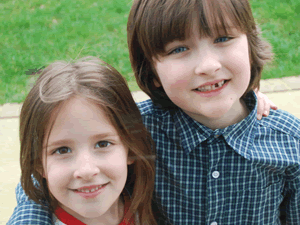 Starting school can be an exciting milestone but it can also be a daunting prospect. How can parents help their kids get off to a good start?
Starting school can be an exciting milestone but it can also be a daunting prospect. How can parents help their kids get off to a good start?
KidsMatter is an Australian mental health and wellbeing initiative set in primary schools and early childhood education and care services. It offers some helpful advice for families wanting to help their child get off to a positive start at school.
“Starting school is a big step for any child. It is important to remember that it is not just about the first day – it is a process that happens over time,” explains Stephen MacDonald, KidsMatter Primary WA Coordinator.
“Children will make many transitions during their lives, and supporting them as they start school – like any other important milestone – will have long-term benefits.
“It is important to remember that every child is unique and there is no ‘normal’ way to feel when starting school.
“Some children adjust quickly to school, and others take many months. It can be a time of great excitement, but also a time of potential challenge and stress for children and their families.”
KidsMatter staff believe that parents and carers play an important role in supporting children to manage the transition into primary school. Children can experience a number of different emotions and each child will have their own way of coping with these changes.
“Your child may experience lots of strong emotions, sometimes conflicting ones like excitement and nervousness as they think about leaving their current setting and moving to primary school.”
Some of the emotions your child may experience include:
- Sadness/anger caused by a sense of loss at leaving the safety of their current setting and letting go of strong relationships and familiar routines.
- Excitement about going to ‘big school’ and learning new things.
- Anticipation or wondering what it will be like, if the teacher will ‘be nice’.
- Nervousness at wondering who will help if needed, what will the other boys and girls be like?
- Fear/anxiety that some things might be ‘too hard’.
Understanding and helping your child to handle the feelings associated with the transition to school will lessen the stress they may experience, and can provide them with positive ways to deal with different transitions and changes throughout their life.
Using language to describe and label emotions will also help children.
“It is important to try to find time and space to give your child the opportunity to talk about their thoughts and experiences,” explains Stephen.
“This can help you to gauge how they are feeling. You might also want to share a story about a time when you felt a similar way and how you handled it.”
Other things you can do to help your child include:
- Speak positively and enthusiastically about school.
- Listen to your child’s concerns and reassure them that it is okay to feel nervous about change.
- Answer any questions they may have.
Children who make a positive start to school are more likely to feel comfortable, relaxed and valued, good about themselves as learners, and have a sense of belonging within the school community.
“If you can help your child to feel confident about starting school you will assist them to cope with the new social and educational challenges that starting school often brings.”
There is a range of information and resources on the KidsMatter website covering a variety of helpful topics for families including ‘starting school’.
For more information go to: www.kidsmatter.edu.au/startingschool


